My Village People premises as a salad of old Nollywood and Neo-Nollywood. A rich, supercilious Lagos man, Prince, (Bovi Ugboma), has returned to the village for his sister’s (Venita Akpofure) traditional wedding. He stays the night and is offered a young maiden (Theresa Edem) to spend the night with by the creepy village dibia (Amaechi Muonagor). The girl promptly falls in love. It would have been a stereotypical movie with that premise, but the reason it’s been laid bare is to show how deeply in tune the movie is with core Nollywood tropes. The extra layer added to the movie is the hallowed subgenre of horror-comedy. The girl who has fallen in love with the obnoxious Lagosian is a witch, and the Lagosian himself does not believe in the supernatural. It is a fine setup for drama.
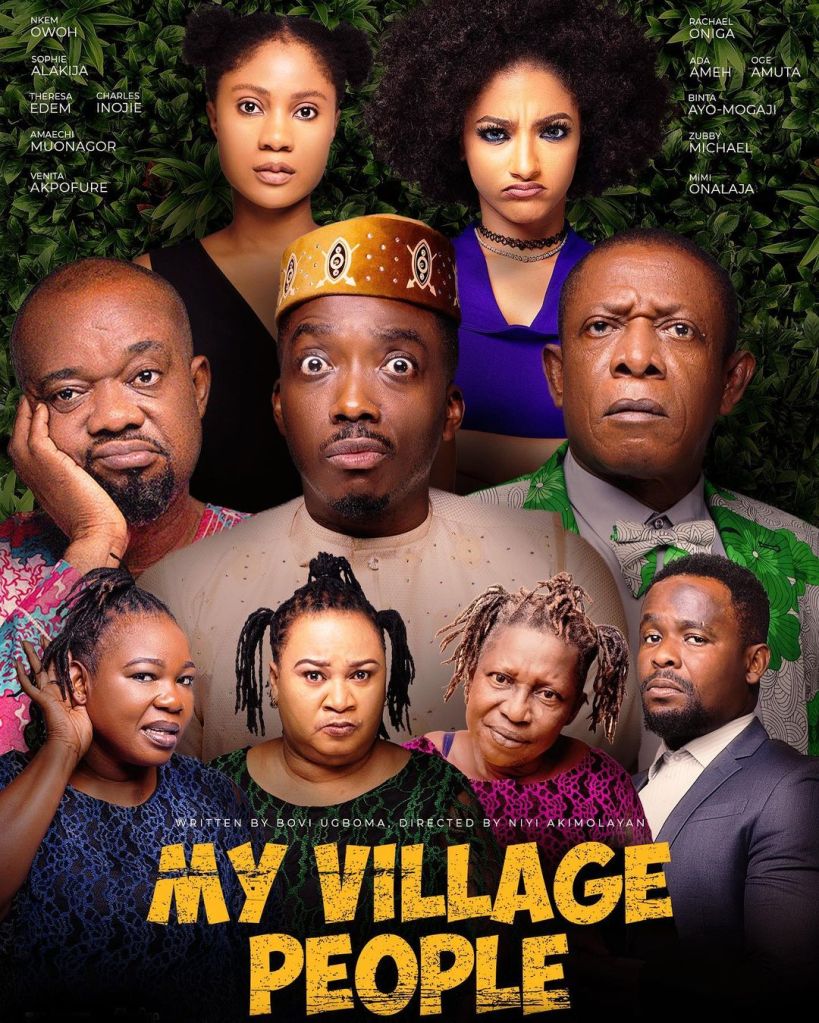
The symbols are set early in the film; the recurring number three to reinforce mysticism, the foreshadowing of witchcraft, agnosticism, and death. All these elements are routinely capped off with Prince’s constant declaration of his imperviousness to supernatural attack because of his religious neutrality. However, when the dibia’s daughter asks him to declare his love to her seven times, he is culled into a messy spiritual conflict. While elements of horror are present, and horror itself is initially implied as the dominating genre, the movie easily settles into the horror-comedy genre. While the comedy holds up in most respects, the horror lags because it relies heavily on jump scares that stop working after the first few times. But this was a peculiar opportunity to depict how the humorous Nigerian side would react to such deeply traditional horror and Bovi does well in this respect. He numerously exemplifies pragmatic Nigerian reactions to being haunted by a spirit wife. This comedic strength the movie rests on ultimately becomes a double-edged blade.
The movie holds up its balancing act bravely before struggling with what element should override another without one genre upstaging the other. And since Bovi wrote this movie, comedy easily becomes the erring genre. Comedic elements continuously upstage horror in the movie. It touches the nth degree when Bovi’s spirit wife comes to assault him in avatar mode, her eyes blazing red, her feet off the ground, and objects in the room eerily flinging themselves to the floor in spiritual obeisance; Bovi still manages to crack a joke, not to demystify or accentuate his assaulter’s powers or to proceed the plot, but just to make a joke. When he runs out of the building, it is the Nigerian comedic rapper, Falz’s “Karishika” that we hear in the background. These aren’t problems when isolated, but when humour follows purportedly serious scenes, it dilutes whatever the scene embodies. In this case, divide horror by humour and the only thing horrific will be the resulting cinematic flaccidity.
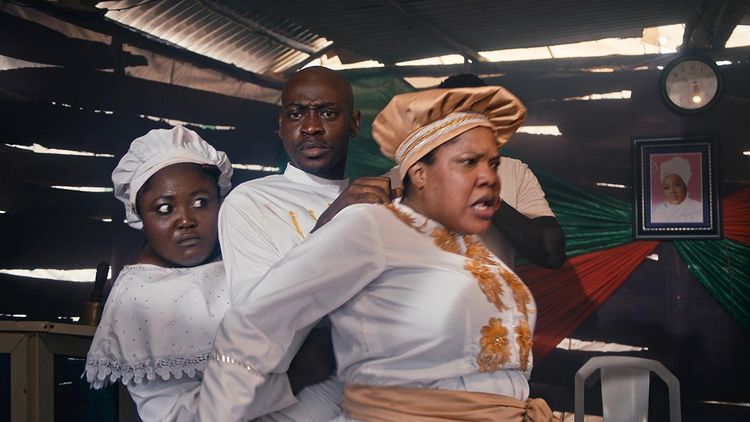 Movie Review: ‘Prophetess’ and the History of Farce.
Movie Review: ‘Prophetess’ and the History of Farce.
It is not impossible to balance humour with horror. My Village People does it successfully in a couple of scenes, which shows this was what the film set out to do. A fine scene where it succeeds would be the early moments of a deliverance scene where the pastor encounters the witches and they punish his falseness by making him kneel and face the wall. But this is the height of such success. From this point, the movie adds new plot threads and it loses its vigour, and the stakes lower because, by humanizing the spirits, we no longer have cause to fear them.
The third act problems that have plagued various Nollywood movies return here again: Bovi’s spiritual helper conveniently makes up spontaneous protections; the logic of who calls dibs over Prince, and how it is done, becomes convoluted; the backstory comes in an hour and a half late; and the three witches introduced as all-powerful at the start of the film are re-introduced as all-powerful only to be discarded as inferior; deus ex machina was utilized so many times in the movie it should now be renamed “Deus ex My Village People”. And when Prince eventually declares his love seven times, is it out of pity for the young witch who made his life miserable or pure Stockholm syndrome?
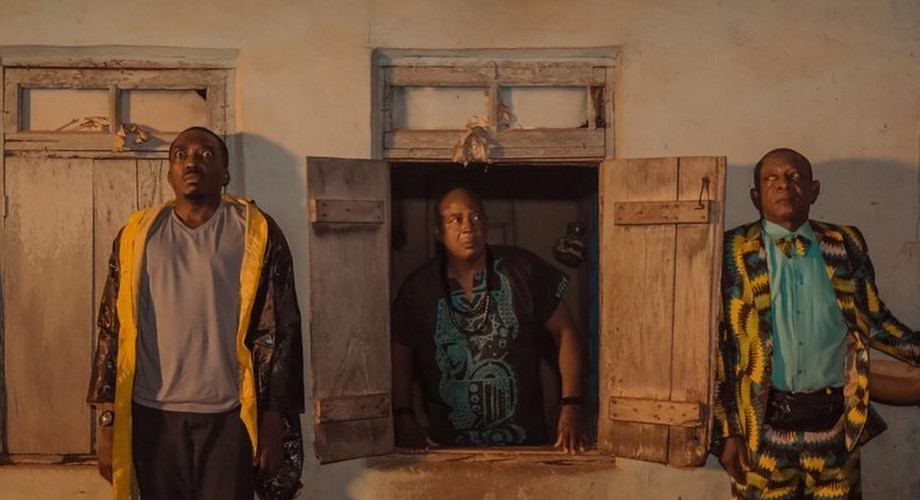
There are also other pertinent questions to be asked: what is this movie trying to say? Traditional intra-tribal marriages and relationship taboos are advised against? The supernatural is real and should not be spurned by naysayers? A warning to chronic womanizers? All outdated moral signals, but even if it is all of the aforementioned, the film’s didacticism is still badly managed.
The movie’s ending is rooted in old Nollywood too; the village girl gets the rich, previously obnoxious Lagos playboy. But the trouble here was never My Village People’s tilt towards cinematic anachronism. Its problem, as with Neo-Nollywood, is the constant need to oversimplify with humour. Humour as a safety net, i.e, if the horror does not sell the movie, then the comedy should. It should. And thankfully, it does it better than Niyi Akinmolayan’s previous film.
Rating: 6/10
You can share your thoughts in the comments section or on our social media accounts.
Side Musings
- Fine blockings and composition in the first initiation scene.
- Although the bar fight scene between the witches and the mermaids could have been better choreographed, it looks good enough.
- With a star-studded list that includes Sophie Alakija, Binta Ayo-Mogaji, Rachel Oniga, Charles Inojie, Zubby Michael, Fares Boulos, Ada Amen, and Bovi Ugboma himself amongst others, there were some pretty impressive acting performances all round.
My Village People is available on Netflix from July 22, 2022.

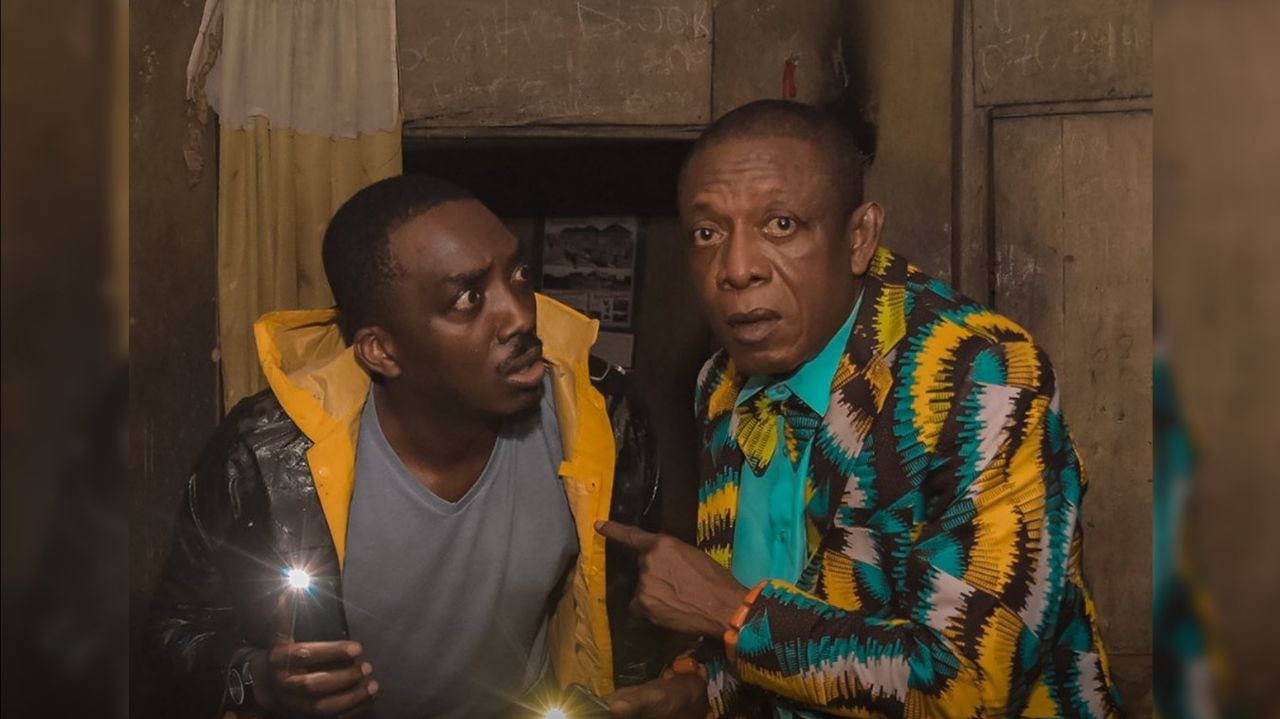
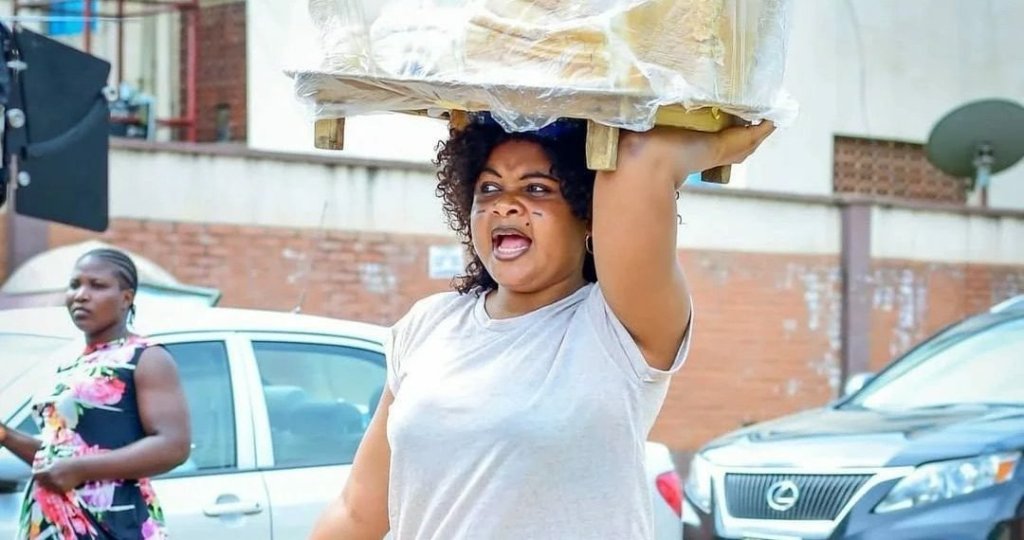
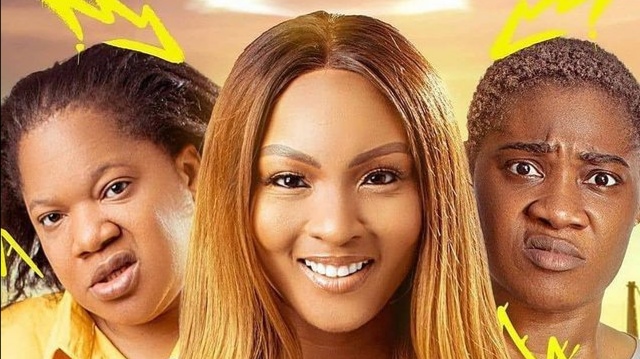


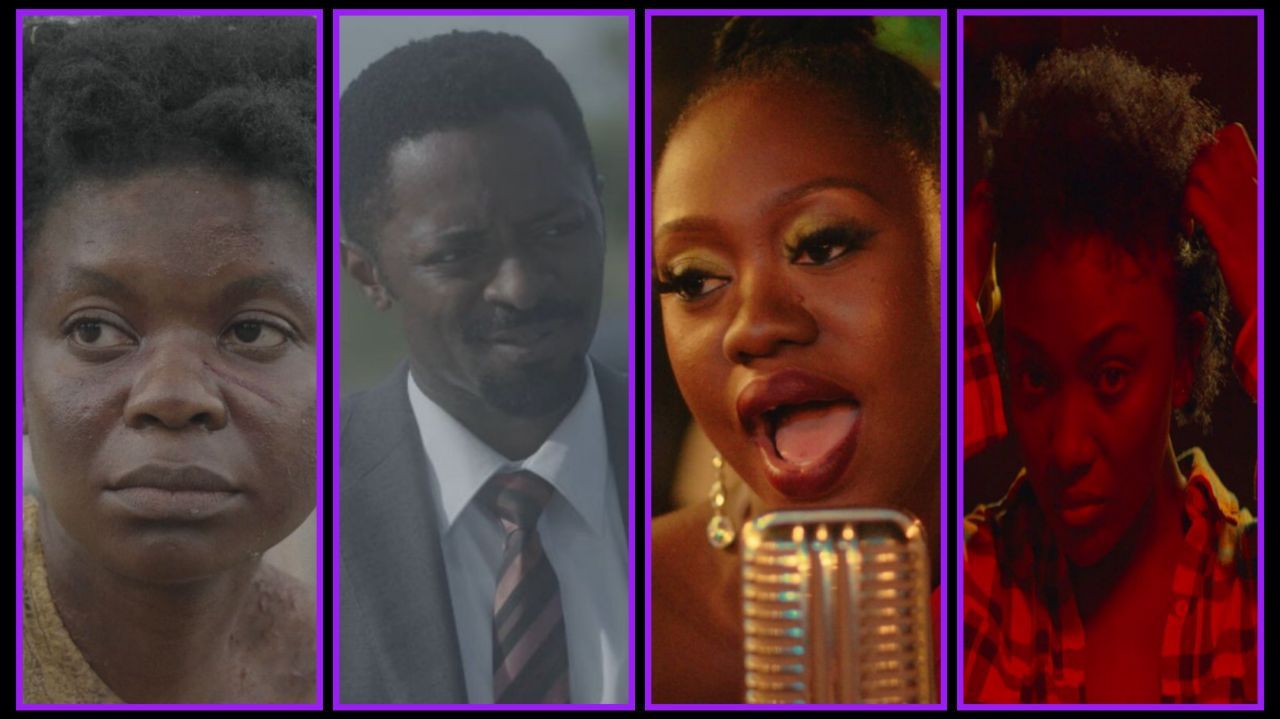

3 Comments